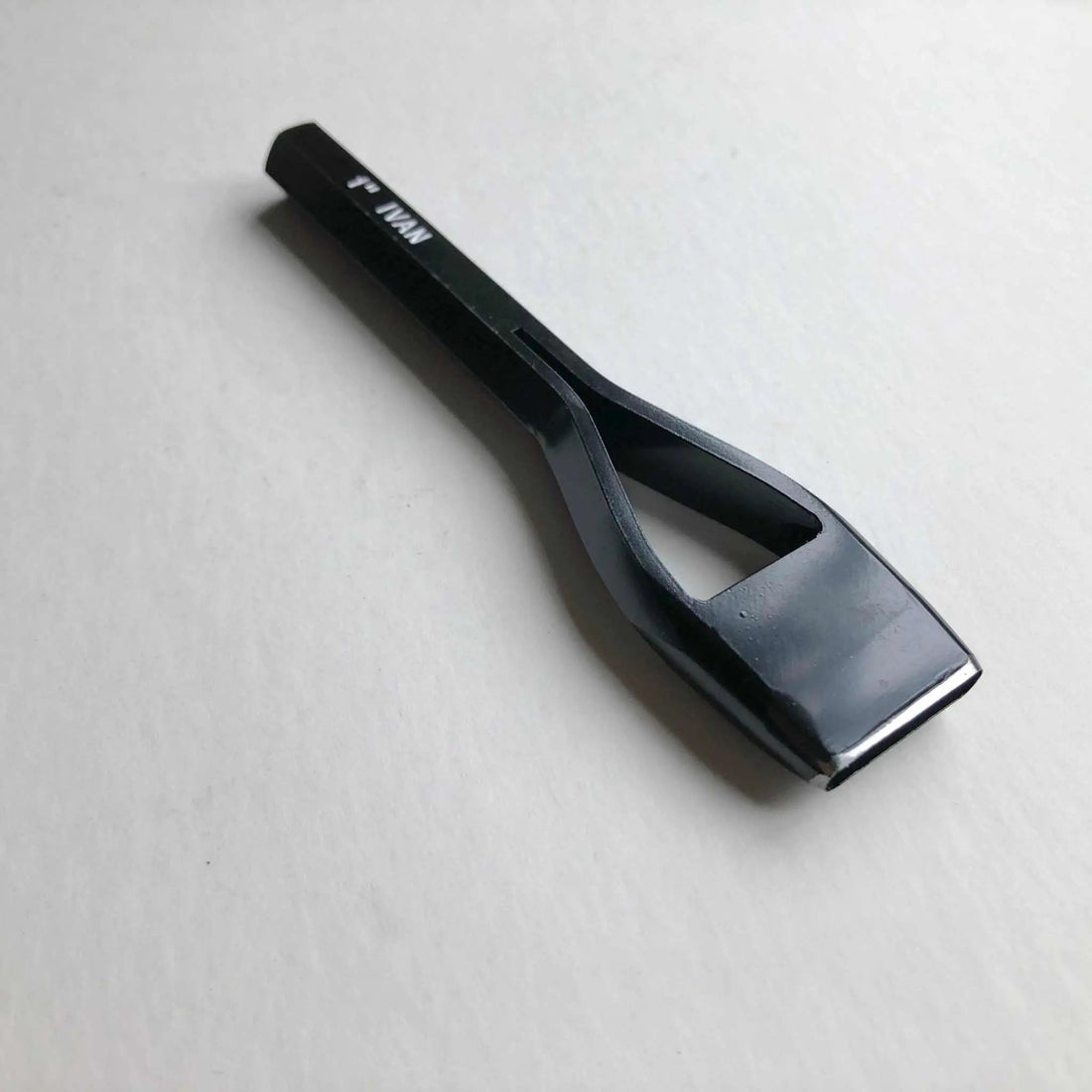
How to Choose the Best Leather Hole Punch for Leather Crafting
Share
Finding the Best Leather Hole Punch
Working with leather requires specialised tools that can handle this durable natural material with precision. Among these essential tools, a quality leather hole punch stands out as indispensable for any leather crafter. Whether you're creating belts, bags, or intricate decorative pieces, the right hole punch can make the difference between professional-looking results and amateurish work.
Understanding Leather Hole Punch Types
Rotary Hole Punches
Rotary leather hole punches feature a revolving head with multiple sized punching tubes. These versatile tools allow you to switch between different hole sizes quickly without changing tools.
Pros:
- Multiple hole sizes in one tool
- Good for projects requiring various hole diameters
- Space-efficient for small workshops
Cons:
- Less force than dedicated single punches
- May not penetrate thicker leathers as effectively
- Moving parts can wear out over time
Drive Punches
Drive punches (also called hollow punches) are individual punches that require a mallet or hammer to drive through leather. They create clean, precise holes when used properly.
Pros:
- Superior cutting power for thick leather
- Extremely durable with no moving parts
- Professional quality results
- Available in precise size increments
Cons:
- Requires separate punch for each hole size
- Need a solid striking surface underneath
- Requires proper technique to avoid damaging the leather
Hand-Held Plier Punches
These resemble regular pliers but with punch mechanisms at the tips. They provide leverage for easier punching.
Pros:
- Good for thin to medium leathers
- No hammering required
- Easy to use for beginners
Cons:
- Limited force for thick leathers
- Fixed size or limited size options
- Can be tiring for large projects
Leather Strap End Punches
Specialised for creating rounded ends on straps and belts with a single strike.
Pros:
- Creates professional strap ends instantly
- Saves significant time over cutting by hand
- Consistent results
Cons:
- Single-purpose tool
- Various sizes require multiple punches
- Higher investment for occasional use
Key Features to Consider
Hole Size Range
Most leather projects require holes ranging from 0.5mm to 10mm. Consider what sizes you'll use most frequently for your particular projects. Belt holes typically range from 3-5mm, whilst decorative work might require smaller sizes.
Material Quality
High-carbon steel punches maintain their edge longer than cheaper alternatives. Look for hardened steel that has been heat-treated for durability. Chrome-plated or stainless steel options resist rust and corrosion.
Hole Punch Shape
Round hole punches are most common, but oblong punches, oval punches, diamond punches, and other speciality shapes are available for decorative work. Some punches create clean cuts whilst others compress the leather slightly, which can be desirable for certain applications.
Comfort and Ergonomics
For hand-held plier-style punches, comfortable grips reduce hand fatigue during extended use. Weight distribution and handle length affect leverage and ease of use.
Replaceable Parts
Quality punches often offer replaceable tubes or cutting heads, extending the tool's useful life considerably.
Price Points and What to Expect
Entry Level (£8-£25)
Basic rotary hole punches and simple plier-style punches fall into this category. These tools work adequately for light leatherwork and occasional use but may lack precision or durability for serious crafters.
What to expect: Suitable for thin leathers and hobby projects. May not maintain alignment perfectly over time.
Mid-Range (£25-£65)
Professional-grade drive punches, better rotary hole punches, and specialised single-size hole punches. These offer significantly improved cutting ability and durability.
What to expect: Clean, precise holes even in thicker vegetable-tanned leather. Better construction with proper hardening and tempering of the steel.
Professional (£65-£160+)
Premium sets of drive punches, specialised Japanese or European-made punches, and professional-grade tools fall here.
What to expect: Exceptional cutting performance, perfect alignment, comfortable use, and lifetime durability. Many come with warranties and replacement parts availability.
Recommended Starter Setup
For those just beginning their leather crafting journey, I recommend:
- A quality mid-range rotary hole punch for versatility
- 2-3 drive punches in your most commonly used sizes
- A strap end punch if you plan to make belts or straps
This combination provides flexibility without overwhelming you with tools or breaking your budget.
Proper Maintenance
Whichever punch you choose, proper maintenance extends its life considerably:
- Clean leather remnants from the cutting tubes after each use
- Apply light machine oil occasionally to prevent rust
- Store in a dry environment
- Sharpen or replace dulled punches rather than forcing them
Conclusion
Investing in quality hole punches pays dividends in the form of cleaner work, less frustration, and better finished products. Whilst beginners can start with more affordable options, serious leather crafters should budget for better tools as their skills develop. The perfect hole punch combines the right size, durability, comfort, and precision for your specific leather crafting needs.
Remember that the best leather punch tool ultimately depends on your specific projects, the thickness of leather you typically work with, and your personal preferences. By understanding the options available, you can make an informed decision that will serve your leatherworking needs for years to come.
--------------
Original article written by Becky Cocker, leather artisan and owner of British Leather Supplies. Explore our site to find more resources about leather craft tools. Visit our shop to find quality quality leather punches.
